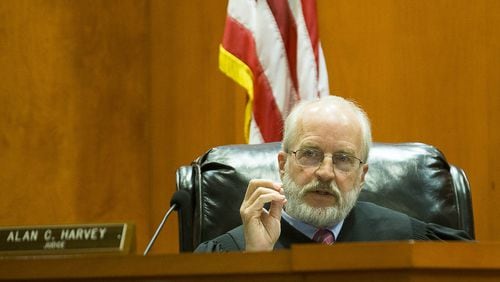Fulton County property owners will not be billed a second time for 2017 property taxes, after a judge ruled the county was within its rights last year when it froze property values at 2016 levels.
DeKalb County Judge Alan Harvey said Lynnette Riley, the state revenue commissioner, was "without legal authority" when she decided to reject Fulton's 2017 tax digest because of county leaders' decision to freeze values. In the ruling, released late Thursday, Harvey also said it would have been harmful to Fulton County taxpayers if the government had been required to reissue tax assessments and tax bills.
Fulton County Commission Chairman Robb Pitts said the ruling was “great news and a great day.”
“It’s a great Christmas present for the taxpayers of Fulton County,” Pitts said.
Thousands of Fulton County homeowners were outraged last year, after property values skyrocketed after the county, for years, failed to keep up with rising values. Nearly a quarter of the 318,000 residential parcels in Fulton had assessments that were up 50 percent or more in 2017, while half were up by at least 20 percent.
Seeking relief for homeowners, and with questions about the validity of the new assessments, county commissioners relied on an 1880s Georgia law to modify the tax digest and send a second set of assessments. Riley's office called foul, saying the move was illegal, and refused to accept that tax digest. The county twice went to court for temporary orders to allow them to collect taxes during the dispute.
The county asked that Riley be forced to accept the 2017 tax digest. In court last month, Alex Sponseller, an attorney representing the Department of Revenue, argued that the tax collection system would be “totally warped” if Fulton was not required to rebill residents. He said it would set a precedent, and would mean any county in Georgia could change its values if residents complained loudly enough.
In his ruling, Harvey said Riley’s failure to approve the county’s tax digest “was a gross abuse of discretion.” He said her office did not suffer from Fulton’s actions, and her request for Fulton to rebill homeowners would “damage the rights of the taxpayers, whom she purportedly seeks to protect.” Additionally, Harvey said Riley’s office would not have collected any money from the rebilling, and Fulton would have had to bear the cost of any additional work.
“To rule in favor of the Revenue Commissioner will cost Fulton County directly, and the taxpayers of Fulton County indirectly, in increased costs and lost revenue,” he wrote.
Harvey also wrote that though the arguments were complicated, there were no similar cases to look to and the parties were “very much at odds,” he based his decision on “a fairly straightforward and common sense reading” of the law.
William Gaston, a spokesperson for Riley, said in an email that the department had received the order and was reviewing it, but had no comment.
Lee Morris, a Fulton County commissioner, said Riley now had to approve the county’s 2017 tax digest. He said if Harvey’s ruling had gone the other way, “the repercussions would have been just outstanding.”
“I couldn’t imagine him deciding any other way,” Morris said. “It would’ve been a disaster.”
Fulton also requested that Harvey force Riley to accept its 2018 tax digest, which also hasn’t been approved, and bar her from rejecting future digests for the same issue. But Harvey said that was outside his purview.
“There appears to be a lot of work left to be done by the parties to this case, individually and cooperatively, but that is beyond the scope of the matter before this Court,” he wrote.
Still, the Department of Revenue will perform a previously scheduled in-depth review of the county’s tax digest in 2019. The review, which happens every three years, may give Riley and her department another opportunity to request changes if they are displeased with the way Fulton has operated. In the last three reviews, the department only approved the tax digests conditionally due to various issues with assessments.
County Commissioner Marvin Arrington said he had voted for the property value freeze, though he had qualms about it. He said Friday that he was happy the county had prevailed, and property owners wouldn't have to pay tax bills for a second time.
“I look forward to working with the Department of Revenue in the future, so we never get back in this situation again,” he said.
WHY IT MATTERS
If Fulton County failed to prevail in court, thousands of county residents would have received a second round of 2017 property tax bills.
About the Author








